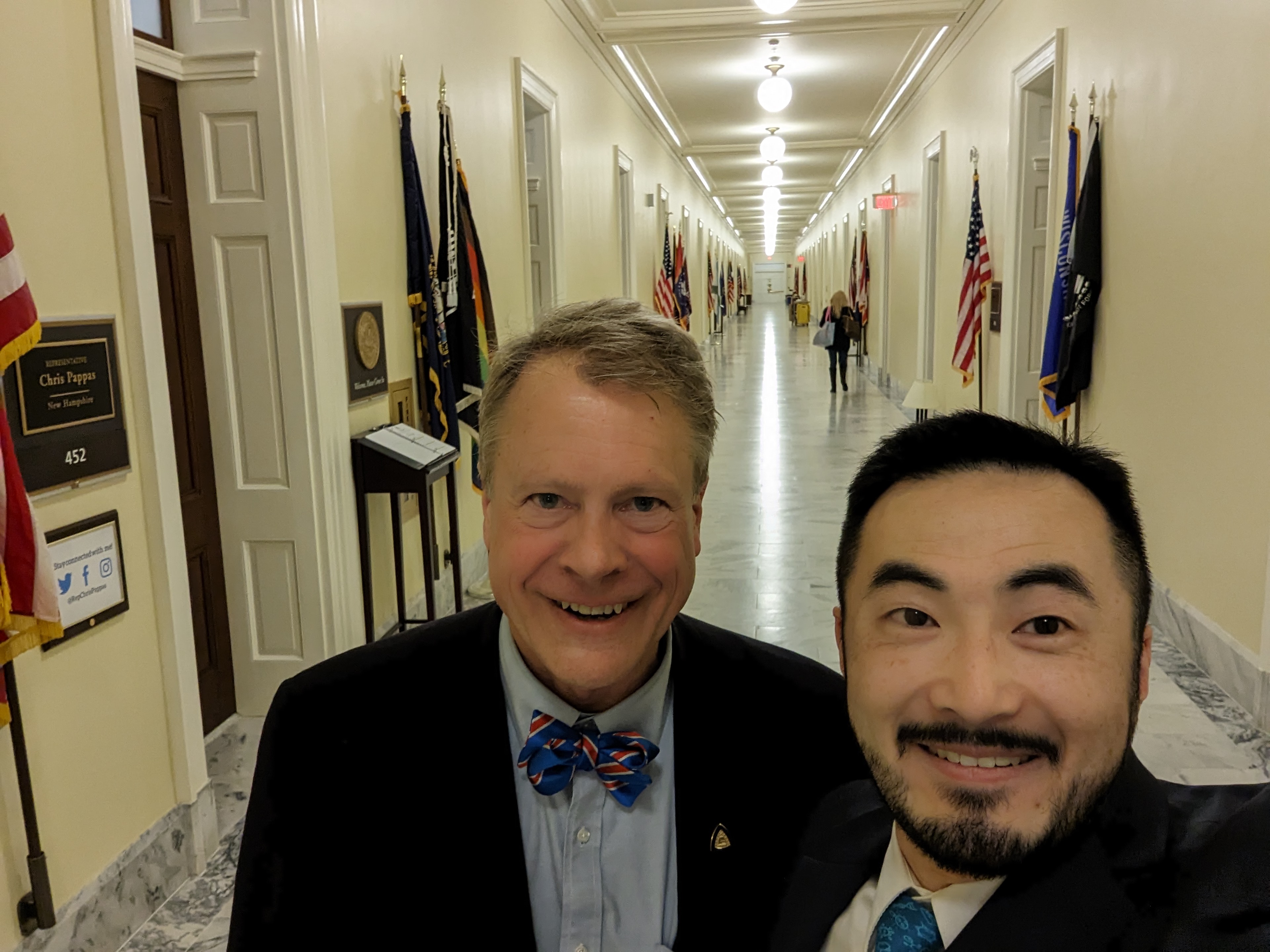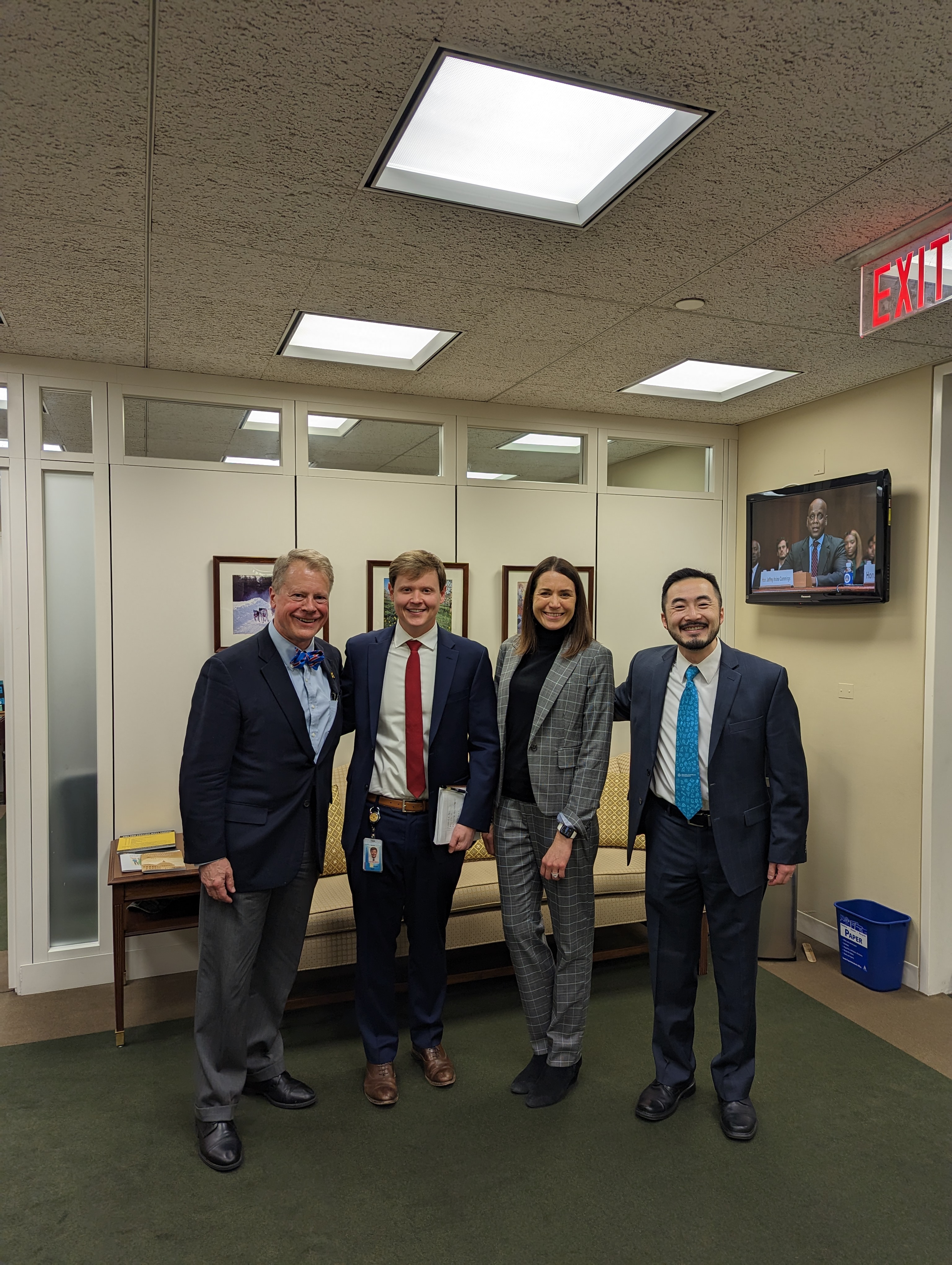Advocacy for NH on the Hill
 From Feb 13-15th, your NH Medical Society sent a delegation of two physician representatives (Alan Hartford and Eric Loo) and two NHMS staff (Catrina Watson and Jane Tewksbury) to the AMA National Advocacy Conference in Washington, D.C., to get updates on current hot issues and to provide advocacy on the Hill for NH physicians. We met with the offices of Representatives Kuster and Pappas, as well as those of Senators Hassan and Shaheen. A summary of these advocacy efforts are highlighted below.
From Feb 13-15th, your NH Medical Society sent a delegation of two physician representatives (Alan Hartford and Eric Loo) and two NHMS staff (Catrina Watson and Jane Tewksbury) to the AMA National Advocacy Conference in Washington, D.C., to get updates on current hot issues and to provide advocacy on the Hill for NH physicians. We met with the offices of Representatives Kuster and Pappas, as well as those of Senators Hassan and Shaheen. A summary of these advocacy efforts are highlighted below.
Medicare Physician Payment Reforms:
This issue touches all of us. Despite ongoing vehement protestations, physicians have been forced to endure a series of Medicare payment cuts over the past two decades, with more recent acute cuts triggered by the flawed Medicare budget neutrality and congressional PAYGO rules. These are cuts that arise on top of lowered valuation for our services. As consequence, between 2001 and 2021 Medicare physician pay fell 22% (adjusted for inflation in practice costs, per AMA estimates). Unlike all other Medicare providers, physicians do not get an automatic yearly inflation-based payment update. Rather, we were saddled previously with the flawed SGR, and now with the flawed MACRA/MIPS programs; and most have found that the actual cost of participating in the latter outweighs any realized reimbursement benefit.
We advocated for our representatives to support efforts to hold urgent hearings focused on developing long-term sustainable solutions for the Medicare physician payment system, to support legislation to provide an annual physician payment update equal to the full Medicare economic index (the index CMS uses to measure practice-cost inflation), and for prior authorization reform in the Medicare Advantage program.
Workforce Shortage Issues:

Projections of a worsening doctor shortage range between 54,100 and 139,000 physicians in the next ten years — numbers that will be further exacerbated by rising rates of physician burnout and early retirement. Compounding the problem, our state has an older population, and we additionally must contend with access to care issues and difficulties hiring talent in our more rural regions.
With full AMA endorsement we advocated for three specific pieces of legislation that address these state and national burdens, all three of which have bipartisan support across the aisle. First, the Resident Physician Shortage Reduction Act is bipartisan legislation that would introduce 14,000 new Medicare-supported GME positions over seven years – positions targeted to hospitals with workforce needs, including rural teaching hospitals, hospitals serving patients in health professional shortage areas, and hospitals already training over their Medicare caps.
Second, our own Senator Hassan introduced the Opioid Workforce Act/Substance Use Disorder Workforce Act, which would create an additional 1,000 Medicare-supported GME positions over five years – positions earmarked for training in addiction medicine, addiction psychiatry, and pain management. These represent sorely needed physicians in the midst of the opioid crisis.
Third, the Conrad 30 and Physician Access Reauthorization Act would reauthorize this important program for international medical graduates, creating a process for increasing the number of waivers per state while targeting improvements so that rural and underserved communities continue to have access to a physician.
Telemedicine Oversight:
We reiterated the need for better Federal regulatory oversight of telemedicine as a means for improving access to care and reducing physician and patient burdens. In New Hampshire we have a significant numbers of “snowbirds,” and the provision of continuing care to these persons during the winter months remains a challenge. There was interest for looking into this issue: possibly with easement of state licensure reciprocity for physician telehealth services when there is an already established patient-physician relationship.
If you would like to get involved in our advocacy efforts please reach out to Michael Padmore, NHMS Director of Advoacacy.
